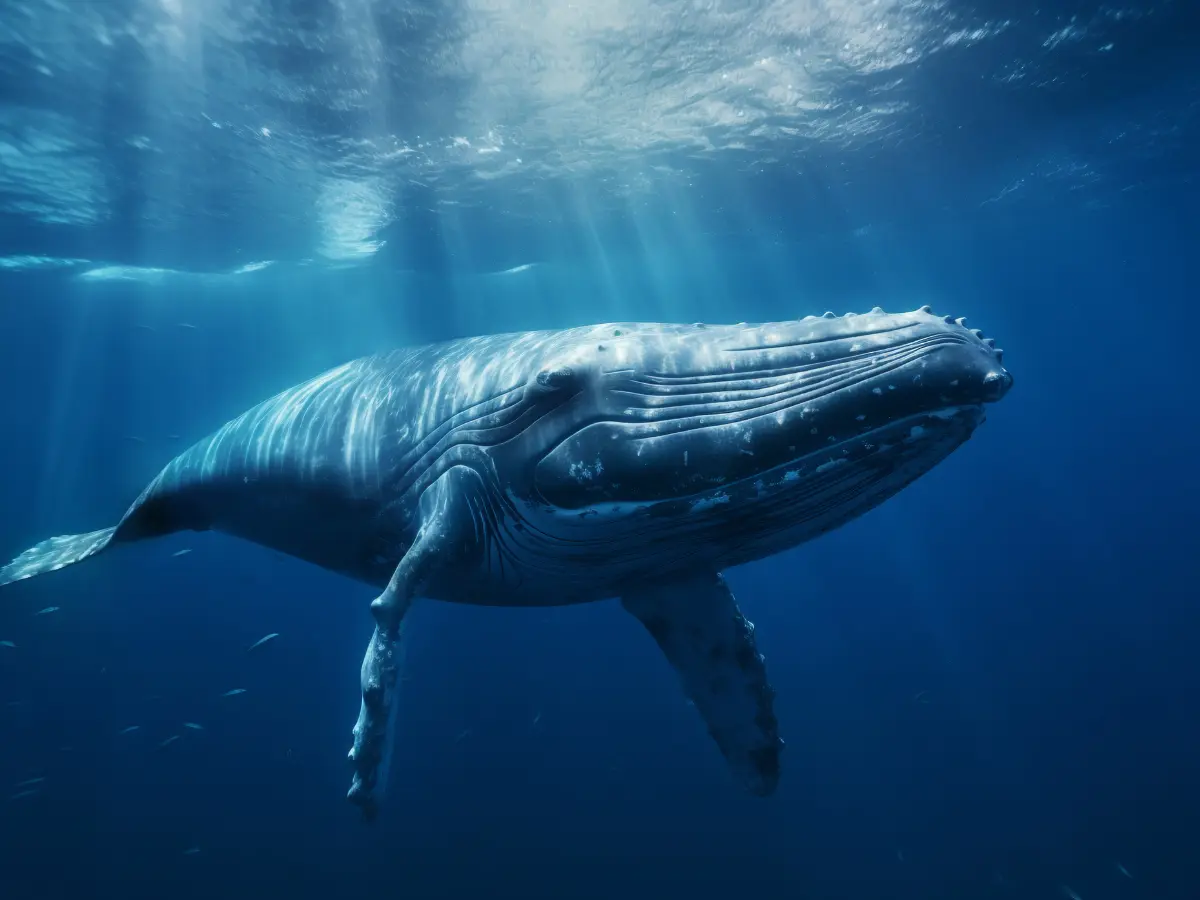Marine animals make noise in the ocean, and it changes depending on their diet and the climate. A study has found that over the years, the symphony created by blue and fin whales has decreased in number, National Geographic reported. Scientists say the underwater songs offer a window into the ocean world, and how marine species are impacted by human activity. A 51-kilometre-long cable stretching from the California coastline along the seafloor and 3,000 feet below the surface has a two-inch metal cylinder at one end. This hydrophone, an underwater microphone, captures the sounds of the ocean and the creatures that live in it. In a study published earlier this year, John Ryan, a biological oceanographer at the Monterey Bay Aquarium Research Institute, stated that the hydrophone picked up clear patterns in whale song across seasons and years over six years in the central California Current Ecosystem. The whale songs started in July 2015, and over the years, no change was observed in the songs of Humpback whales. However, blue and fin whales were not singing as much. Also Read: ‘Ryo Tatsuki was right’: 8.7 earthquake in Russia sets social media abuzz with Japan’s Baba Vanga’s prophecy
Also Read: Earth has two new seasons, and it is not good news for our planet
Heatwave killed krill, favoured prey of blue whales
The primary reason for this, according to the study, is the change in their diet and the availability of kill triggered by climate change and the warming oceans. Humpbacks feed on a range of prey and adapt when certain types of food fall in number. However, the blue and fin whales mostly only eat krill, and the heat had triggered a fall in their population. This left these creatures with hardly anything to eat, and so they weren’t singing as much. The recordings were made during a massive marine heatwave. The krill had died as a result of this, besides an observable change in ocean chemistry, which led to toxic algae blooming in the region. “It caused the most widespread poisoning of marine mammals ever documented. These were hard times for whales,” says Ryan. Also Read: Nature’s weirdest ALCHEMIST! This tiny microbe eats poison poops pure gold
Blue whales couldn’t sing when hungry
The study showed that during the heatwave, blue whale vocalisations dropped by nearly 40 per cent because of a collapse in krill and anchovy populations. Ryan says they weren’t singing because they were spending all their time looking for food. “It’s like trying to sing while you’re starving,” he said. Starting from 2013, and stretching into the next few years, a mass of warm water spread from Alaska to Mexico. The average ocean temperatures increased by more than 4.5°F. Called The Blob, it covered 3,218 kilometres of area in the Pacific Ocean. This led to krills vanishing all of a sudden. Since they form the foundation of the marine food network, it triggered a huge problem. Blue whales had almost nothing entering their stomachs when gallons of water entered their mouth. Scientists say this is cause for concern and a massive problem unfolding in the world’s oceans amid climate change.
Related Stories

